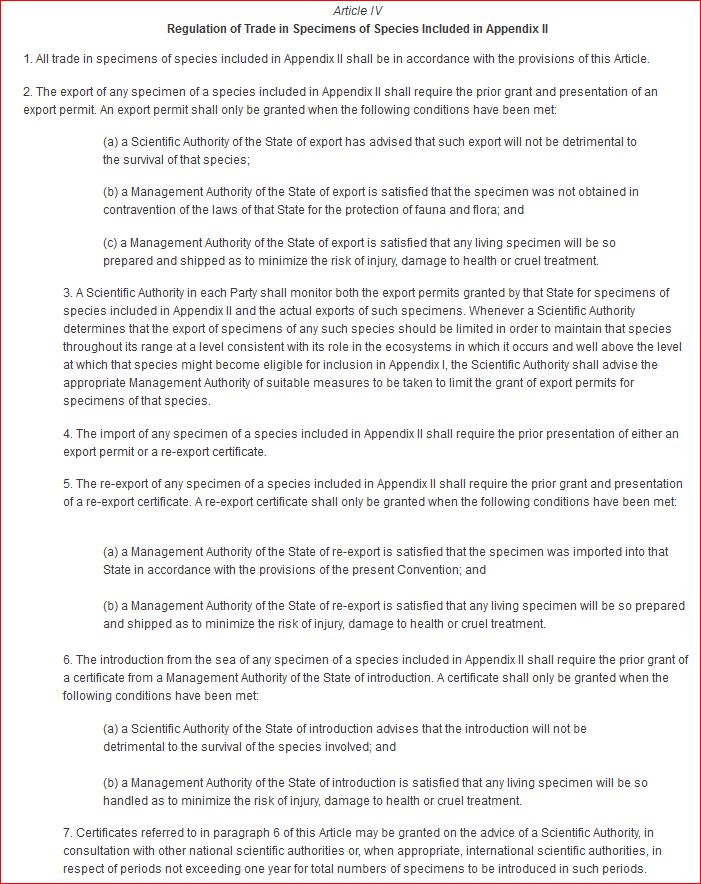|
kitarist -> RE: CITES Indien Rosewood (May 9 2017 16:48:52)
|
quote:
ORIGINAL: Anders Eliasson
quote:
quote:
ORIGINAL: Anders Eliasson
I asked Cites Denmark what was needed if I sold a guitar to an Australian client that came to my workshop and picked up the guitar.
I was told that since it was sold within the EU, it wasnt an export and so did not need any CITES papers. CITES Australia said it needed Cites papers.
It makes totally sense, because burocracy has always been like that.
Well this does make sense, given that the rule is about wood export but is typically being enforced at the point of import to another country.
So as far as the EU is concerned, a commercial transaction happened within its borders, so export did not even enter the equation. But as soon as that client tries to return to Australia, they will ask him for his export certificate to prove it is a legitimate purchase of App II wood (we are assuming non-Brazilian rosewood). So if the Australian guy ever wants to leave the EU, he better get an export certificate, and might as well do it at the time of the commercial transaction.
Well, actually it could be looked at in another way and thats what the Danish authorities believe:
The guitar is bought within the EU and doesnt need CITES and since a privat person can travel free with a personal instrument without cites papers (except app 1) there´s no need to make any paperwork.
From Australia's point of view, that person left without a guitar and came back with a guitar. So this is not the same as leaving and returning with the same guitar. I think the US already has specific instructions that this is not a gray area - i.e. you have to have left and returned with the same guitar for it to count as non-commercial movement not needing a certificate. Of course as as practical matter maybe nothing will happen at the point of entry - but you are playing the odds and some people may not be comfortable with that.
I used to think that a gray area existed where you happen to travel around, then on a whim decide to buy a guitar where you are as a visitor, then from the point of becoming the guitar's owner it is yours so therefore the return trip to your home country is you travelling with your personal guitar as a non-commercial movement. However, authorities in at least the US and probably elsewhere are making it explicit in their guidelines that the non-commerical travel exception only applies if you left and returned with the same guitar - which makes logical sense in terms of the intent of the rule, though it is annoying being applied to guitars and furniture in the same way.
|
|
|
|

